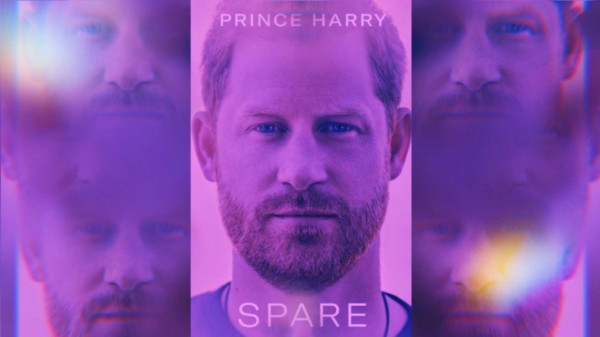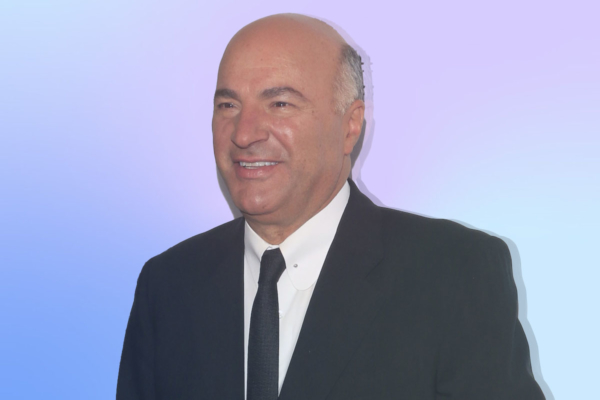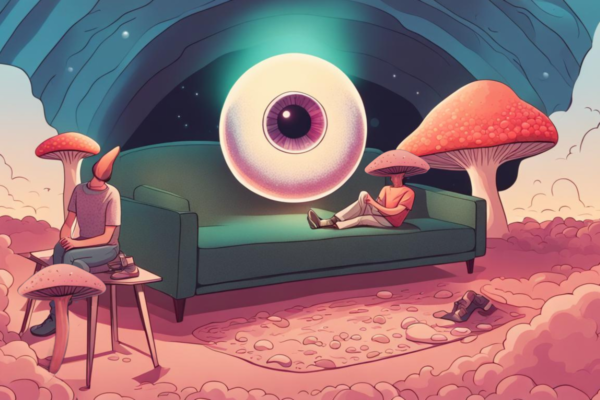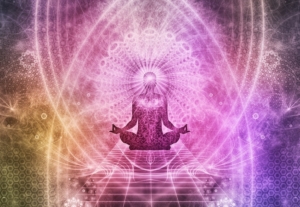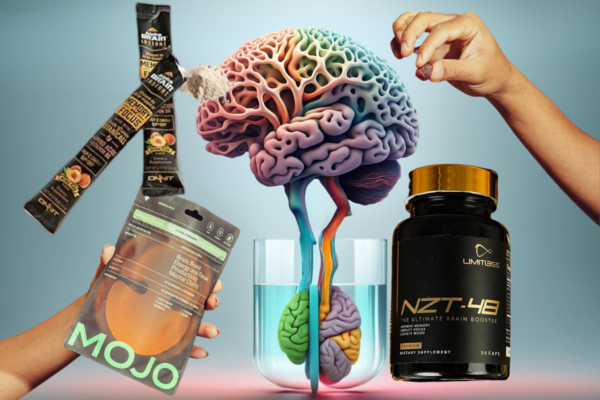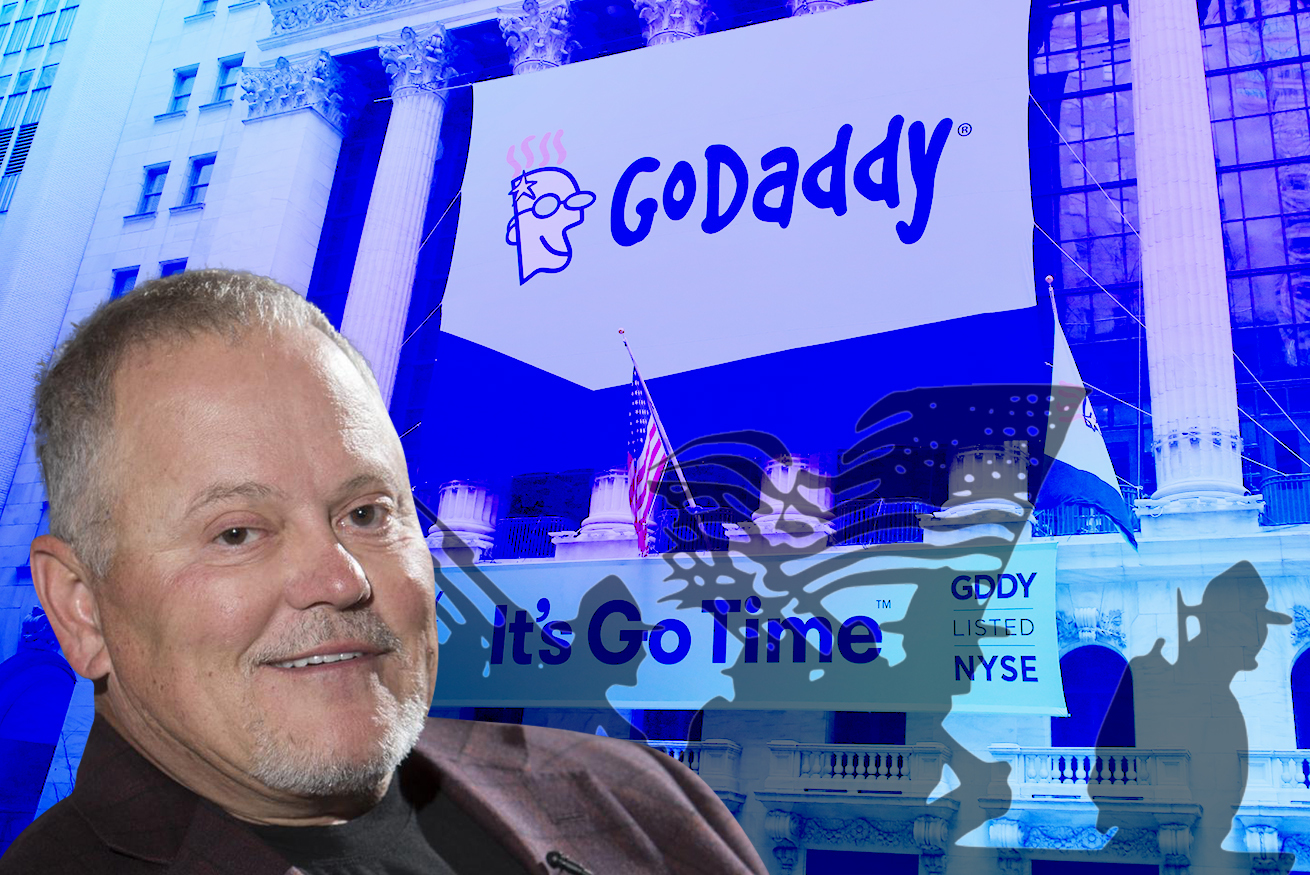
Bob Parsons is the self-made billionaire founder of GoDaddy. In Part I of his conversation with David Flores —CEO of Psychedelic Spotlight— Bob discussed how fighting in the Vietnam War gave him a severe case of PTSD that went untreated for decades.
It wasn’t until he received psychedelic therapy, using ayahuasca, magic mushrooms and LSD, that he finally beat his PTSD and “returned home.”
In Part II of their discussion, Bob and David discuss Bob’s work in funding psychedelic therapy research, and how to ensure that at-risk communities get access to this medicine. Then, at the end of the interview, Bob tells an extremely touching story about his relationship with his mother, and how psychedelics may have helped to bring him closure.
***This transcript has been lightly edited for clarity and length. This is the second half of the interview. To watch the full interview, click here.
David: Bob, you’re one of the one of the lucky few that were able to find your way home [after battling with PTSD]. Unfortunately, the reality of it is, far too many of our brave service men and women come home, but they never find their way home, so to speak. And a lot of that has to do with a lack of resources, a lack of a framework in place to help them confront the trauma that they experienced while in service.
What do you think needs to happen here? I know a big part of your own mission is to try to spread the word of your experience —your healing— in the hopes that this is something that other people out there, that perhaps are experiencing the same thing that you are, can discover. But what needs to happen to bring this to the masses so that more people can find their way home?
Bob: Well, there’s a few things. The first thing is, it’s got to be available, right? And it’s got to be provided by people that know what they’re doing, right? Because, if you’re with somebody who doesn’t know what they’re doing, and you take a hero’s dose, any of this stuff can go sideways. And the one thing you don’t want to be, is worse than you were before you did it. And if you’re with experienced people and trained therapists, that’s not going to happen.
The second thing is, it’s got to be available. And read that as legal, alright? And I think if those two things are present, what we’re looking at is —the best word I can use for it is— renaissance. I mean, we are looking at a renaissance in this country, that if we’re smart enough to really push this out right, it’s going to be incredible. There’s a lot of pain in this world. A lot, a lot, of pain David. Especially from PTSD.
And, I mean, people in prison? All the agony and the hate and all that shit there? With MDMA, which I’m pretty active in helping fund their field trials and to provide the FDA with the information that it needs in order to get it approved. I mean, that’s a game changer! What we found with the [clinical trials] is off the hook!
For example, in the [Phase III clinical trials], I think it is 67% of people with treatment-resistant PTSD …after three sessions of therapy are completely cured! Think about that!
David: It’s remarkable.
Bob: Yeah! Now, we think you sit down with a trained therapist, you’re in for the long haul baby! But not with MDMA, at least with what we’ve found.
David: So, on the subject of MDMA, we know MAPS is making some terrific progress with the clinical trials they’ve got going on. There is hope, at least here within the psychedelic sector and community, that the FDA may grant its approval sometime next year. Do you feel that that would create a domino effect if you get MDMA to a point where the FDA is able to clear it? Do you think other psychedelics will perhaps become legal for therapeutic use?
Bob: Yeah, sure I do! Right now, the thing that is holding this back is fear of the dark. Because if people knew what we knew, and if the government knew what we knew, it’d be approved, right? Because who doesn’t want our veterans not to have PTSD? Who doesn’t want us not to have 22 veterans a day taking their lives? I mean, that’s terrible! After everything they’ve done for the country, right?
And then, all the other stuff. People that are trafficked, people who fall on the wrong side of a crime. Whatever that horrific thing. People in prison, for the first time in history, if we were treating them with psychedelics we’d be having people come in and it would take all the agony and shit that they’re dealing with.
It’s easy to think that people in prison are just bad people? A dear friend of mine, Andrea Bocelli, he goes, “uh Bob, there’s a reason I don’t believe in the death penalty… These people are a product of how they were raised.” If you could look at their childhood, it’s horrific. Let’s just think if you can turn it around? Psychedelics have the promise of doing that.
David: Yeah, I agree. I want to circle back to something that you mentioned in terms of it being a renaissance. It’s only really an effective renaissance if it actually has a positive impact on everyone. And I’m talking about folks from marginalized communities, which is why I’m glad you brought up the prison system. Because, I think if psychedelics and their true potential are really going to be unlocked here for society, we have to make sure that everyone is included.
I know you’ve donated hundreds of millions of dollars over the course of your life here, and I know you’re also getting involved in terms of trying to ensure that there is a framework for psychedelics and psychedelic healing. Trying to make sure that individuals from black communities are also provided with a framework so that they too will have access to this.
How important is it to have these conversations about how we’re including everyone, versus just the upper elite of society that of course is going to have no problem accessing and affording this? What are we doing for the folks in marginalized and lower socioeconomic communities?
Bob: Well, you’re right. We got to reach out to them. We got to include them. I’m working with the University of Baltimore and President Kurt Schmoke, a dear friend of mine —used to be the mayor of Baltimore. What we want to do is provide a framework where we can train therapists, but especially therapists of color.
And, I would think that it is the rare white person, if there is such a person, that knows what it’s like to be black in America. I don’t think so. But for example, I had a black therapist tell me, he goes, “You got to think about this. Now —a lot of times— if a white person gets stopped with a small amount of drugs, whatever the hell it is, a lot of times they just get a slap on the wrist and we’re done.
“Black man goes to jail.”
So, as a result of that, where’s the last place you want to be brother? Jail! I mean, talk about a bad party! So, they’d be very reluctant to even try it, right? So, it has to be legal, you have to reach out to them, you have to explain what’s happening, and it has to be by people they know and trust —which is their own therapist. That’s why it’s important to do that and that’s why it’s important to get a good head start on it.
David: Yeah, it’s very important. It’s also why we here at Psychedelic Spotlight support Black People Trip and Robin Divine and her mission there. She’s doing the same thing, trying to bring psychedelic focused education to individuals within the black community. And it’s so important, because you got to start now if that change is going to happen, if this framework is going to be developed.
As we look to wrap things up here, Bob, I want to circle back to something that you mentioned in a previous interview that I had the opportunity to listen to. It’s the story that you shared about your mom. And sharing the fact that for most of her life she was not an affectionate person, but a lot of that had to do with the fact that she grew up with a father that —as you put it— was an abusive alcoholic.
And that really resonated with me. Because my father was an alcoholic and passed away at the age of 59, after a very long and painful battle with his alcoholism and depression. And it just reminded me, Bob, of how important it is for individuals like yourself, who have such a large public platform, to be willing and open to sharing your story, to putting yourself out there and talking about this. It’s very important because it engages other people within society to start talking about it as well.
How have you found your story being received out there, when talking about psychedelics and your healing experience?
Bob: Not everybody, but 99% of them have been very receptive and very positive about it.
To tell you the story about my mom; you mind if I tell the story about my mom?
David: Of course, yes.
Bob: Yeah? My mother. Now, she was something else. She was the smartest woman I know, but she just never had a lot of faith in herself. It all stemmed from when she was a kid, she could do no right. And her father used to make barrels, he was a Cooper as she called it. It’s a lost art now, I think.
So, he would come home many nights four sheets to the wind [very drunk]. She had seven siblings, and he would pull her out —always her— and beat the living shit out of her. And, I mean, this happened again, and again, and again, and again. So I mean, when she grew up, she broke the cycle of abuse.
My sister studies genealogy, and she found out that mom’s father, when he grew up —while he was raised by his grandmother— she was brutal to him, and on, and on, and on. So my mom —to her credit— she never abused us! I mean, she broke the cycle baby! And, god bless her.
But, if I had to think back and somebody said, “What is the most loving time you remember with your mother?”
I don’t remember one time. Because, she just, she had no love in her.
So she passed when she was 94, she passed five years ago. And one night after she passed, I was at my house in Hawaii and I had this dream, it was about 3 in the morning. And this thing was, I mean, as real as I’m sitting here talking to you now. And I walk into this room and mom was laying on the couch, and she sees me and she gets up, she comes over to me, and she goes, “Hi Rob. Can I have a hug and a kiss?”
And I go, “Oh, sure you can mom.”
So I give her a hug and a kiss, and she says, “I love you.”
Then, she goes, “Can I have another one?”
“Sure you can mom!”
Same thing, right? And, um, then I look down, look up. She’s gone.
So, um, this was right after I was treated with psychedelics, months or so. And so, I get up that morning, and my brother calls me, and he goes, “You know what today is?”
I say, “Yeah, what?”
He goes, “It’s mom’s birthday.”
And, to me, she came back.
And I’ll tell you what. That’s what I choose to believe. And it’s beautiful.
David: It is absolutely beautiful. Thank you so much for sharing that story. Wow. I got chills. I mean, that is a beautiful story Bob, it really is. It’s almost as if, in many ways, psychedelics help tune you into a frequency —so to speak— that maybe you otherwise can’t tune into. And it’s a frequency that allows you to be more receptive to yourself, to life, to love, and things of that sort.
And I’m wondering —and I don’t want to get too, like, hippie-ish or whatever with this— but, do you foresee a world where if psychedelics are more readily available, and whether it’s recreational or medicinal, a world that is more in tune with itself? A society that has discovered more peace? Do you think that? Or is that just too much of a dystopian type future that is unrealistic?
Bob: First, I believe it will happen. Psychedelics will be the tool that we use to get there. And it is my hope that I’ll be alive to see it. So there you go brother.
David: That’s beautiful. And, again. I thank you so much for the work that you are doing. Sharing your story, putting yourself out there. I understand how important it is. And we’re going to get there, because of people like you.
So, thank you again, Bob. This has been fantastic. I’m so glad we had the opportunity to connect, and I look forward to staying in touch with you and sharing more. This has been fantastic.
Bob: All right buddy. Hey David, thanks for reaching out to me. It’s been a real pleasure and I wish you all the best this life has to offer, brother.
